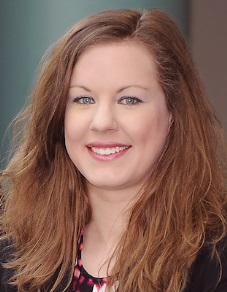
Lisa Hager (CFP 2015-2016) is an Assistant Professor of Political Science in the Department of History, Political Science, Philosophy, & Religion at South Dakota State University. Professor Hager spent her fellowship year in the office of Rep. Daniel Lipinski (D-IL).
Why did you apply to the Congressional Fellowship Program?
I’ve always been a political junkie, and I couldn’t pass up the opportunity to work in Congress and get a behind-the-scenes look at policymaking. I also knew that the insight I would gain would help me advance my research agenda and allow me to bring concepts to life in the classroom.
What issues did you cover and what types of work did you do for your host office during your fellowship year?
I’ve always been a political junkie, and I couldn’t pass up the opportunity to work in Congress and get a behind-the-scenes look at policymaking. I also knew that the insight I would gain would help me advance my research agenda and allow me to bring concepts to life in the classroom.
For each policy area, I was responsible for following current legislation and political issues within and outside of Congress. On a day-to-day basis I attended briefings, met with lobbyists, responded to constituent letters and emails, wrote co-sponsor memos, drafted talking points for the Congressman, and provided information to help with vote recommendations.
My work with the STEM Education Caucus focused on leading Steering Committee meetings. This allowed me to meet advocates and help them plan briefings to raise awareness of issues important to them, Congressman Lipinski, and other caucus members.
Covering the Science, Space, and Technology Committee involved staffing the Congressman at hearings and markups. This required drafting talking points or memos and being prepared to answer any of the Congressman’s questions.
What was a typical day in the office like?
When the House was in session, I would spend the morning either staffing the Congressman at a Science Committee hearing or markup or preparing for one coming up later that week. I spent a good amount of time preparing to staff the Congressman because covering the Science Committee requires a working knowledge of topics such as fusion, solar fuels, and electricity storage. Learning chemistry in high school was finally useful! In the afternoons, I usually met with lobbyists and worked on talking points for receptions that the Congressman was speaking at that night.
During recess, I worked on co-sponsor memos, responses to constituent mail, and my policy project. When I started my fellowship in the office, I was tasked with developing a bill that would create and strengthen middle-class job opportunities through apprenticeships. After hours of research and discussions with stakeholders, I helped Congressman Lipinski draft the Apprenticeship Improvement Act of 2016. The bill proposes allowing Workforce Innovation and Opportunity Act funds to be used to pay pre-apprentices participating in programs that lead to Department of Labor Registered Apprenticeships.
What were some of the highlights of the fellowship year?
I feel like I could go on and on about highlights from my fellowship year. In general, I honestly really enjoyed just experiencing the day-to-day activities of Congress and being able to walk around the Capitol. A few of the biggest highlights for me was the introduction of the Apprenticeship Improvement Act of 2016, going to Supreme Court oral arguments during orientation, and watching the “No Fly, No Buy” House floor sit-in from the gallery.
What impact has the CFP experience had on your subsequent career?
As far as my research agenda, my experience has given me a fresh perspective and provided me with multiple ideas for future projects. I would say that my teaching has benefited the most. As I had hoped, I’m able to provide students with a first-hand perspective of the material they’re learning about that day, week, and/or semester. What I didn’t think about going in is that my fellowship experience has given me tons of ideas for assignments that prepare students for a career in politics. For example, students in my course on Congress write co-sponsor memos. I’ve also found that I’m better able to advise students about the ins and outs of interning in Congress over the summer.